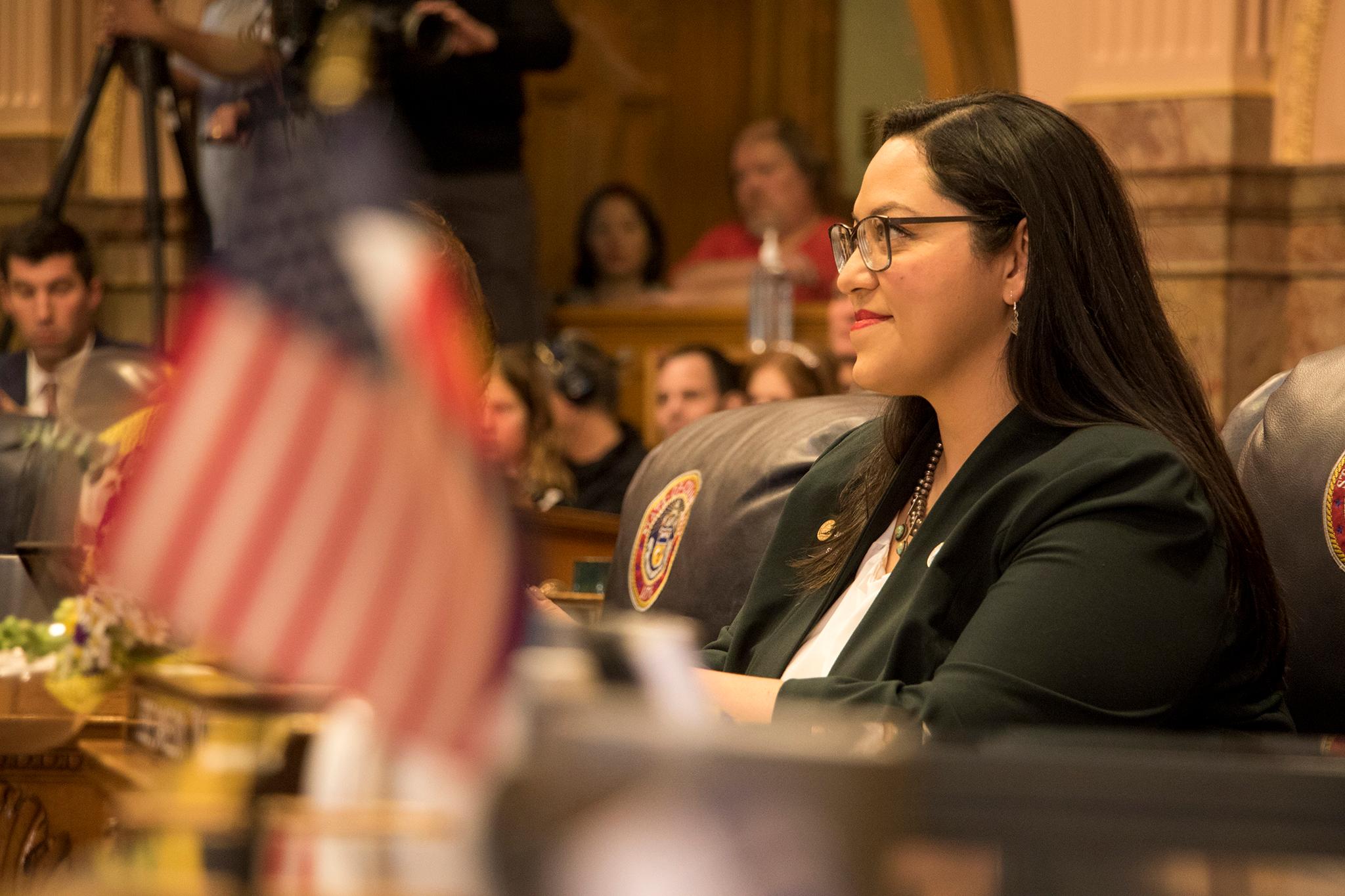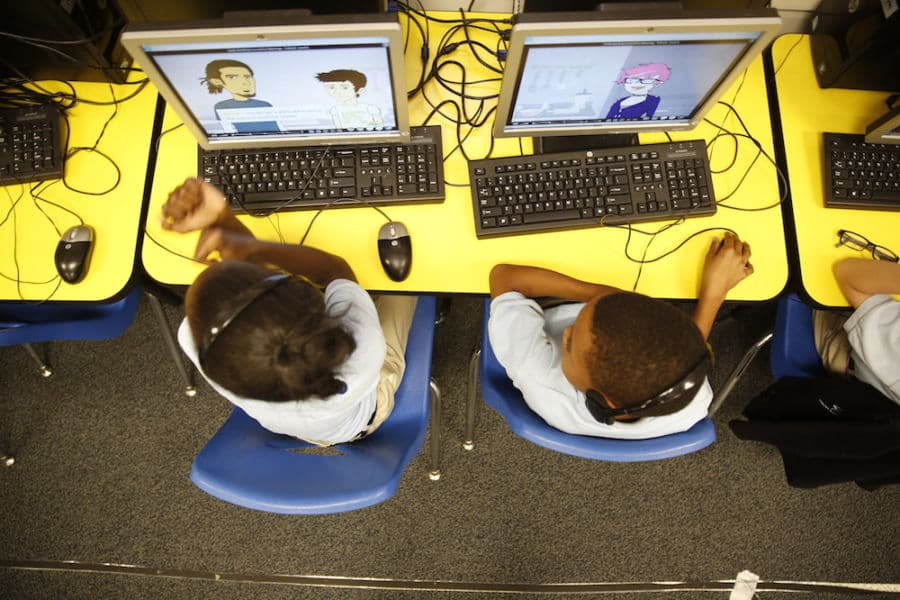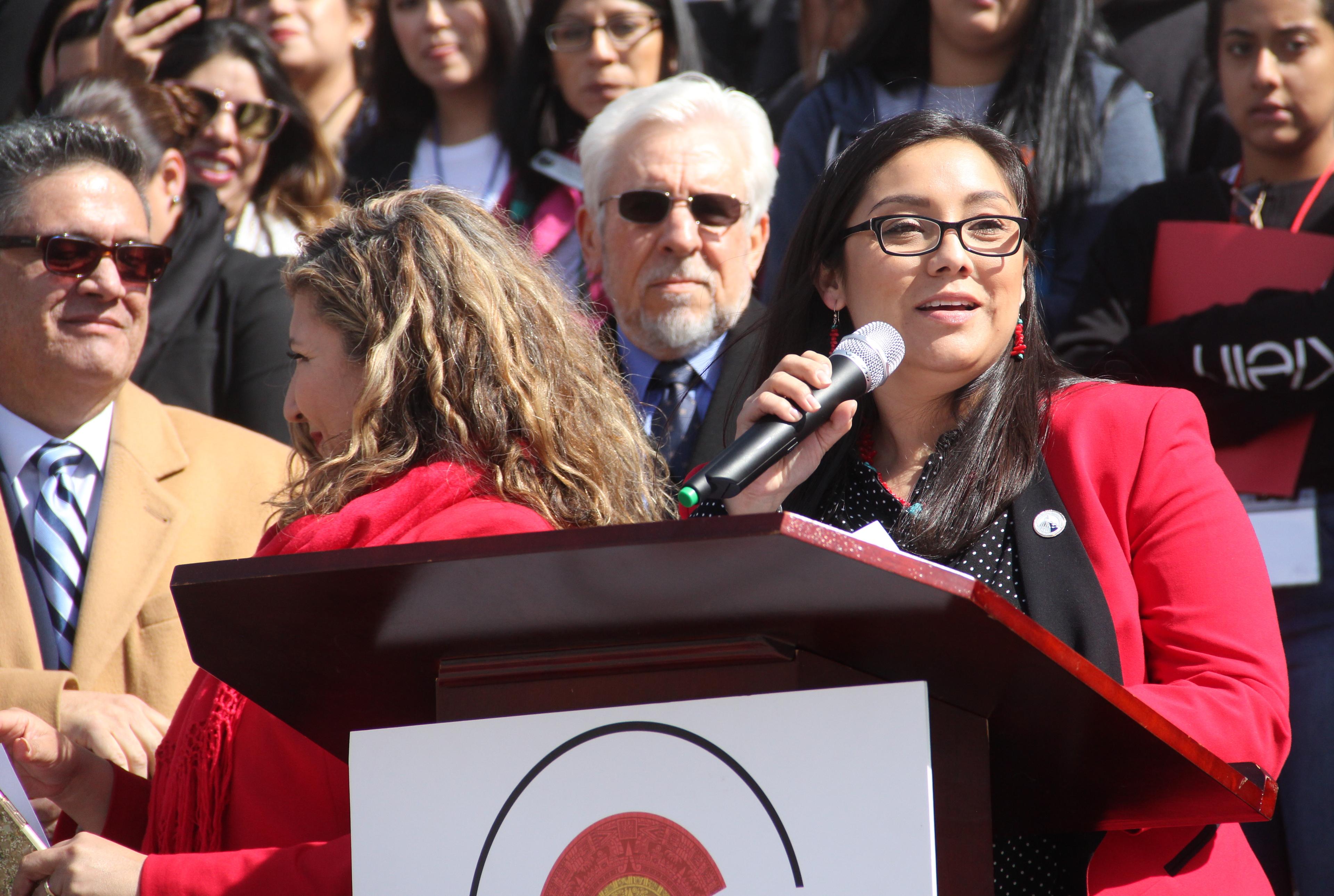A bill now in the hands of the state Senate would create more opportunities for Colorado students to learn about the contributions of underrepresented communities, the lawmakers behind it hope.
Those communities include American Indian, African American, Asian American and Latinos in Colorado, as well as LGBTQ folks within those communities. The bill is called the Inclusion Of American Minorities In Teaching Civil Government Act, and it would establish a 16-member commission comprised of members from those minority communities, members representing higher education and members from the Department of Education.
The commission would be required to meet twice a year, and would make recommendations to the state board of education on the standards for teaching history and civics classes related to ethnic studies. After passing the House on party lines last month, the bill scheduled to be heard Thursday at the Senate Education Committee.
State Rep. Serena Gonzales-Gutierrez of Denver, Sen. Julie Gonzales of Denver and Rep. Bri Buentello of Pueblo are co-sponsoring the bill.
In some ways, what the lawmakers are introducing is a reminder of the West High School blowouts. Mexican-American students back then sought to learn more about their history.
"My family was part of those. My grandfather was there with the Crusade for Justice," Gonzales-Gutierrez said. "That's what sparked all this ... and here we are today putting things in place to make sure that that happens."
What this bill would and would not achieve has been the subject of partisan debate.
In Colorado, there are have been laws in the books for more than 10 years mandating government classes covering the history of minority groups. The bill introduced this year would, in a way, supplement that law. Gonzales-Gutierrez said it helps provide schools and teachers with the tools to teach these classes "appropriately and accurately."

Gonzales, who went to high school in south Texas, has family members in Denver Public Schools she would like to see learn more about someone "who looks like them."
"This bill is really meant to ensure that students in Colorado are learning about diverse folks who have contributed to our state's history and legacy," Gonzales said.
Currently, school districts convene community forums to discuss content standards once every 10 years. The bill would shorten that time span to six years.
A similar bill was previously introduced by then-state Rep. Joseph Salazar, but it failed in the Senate due to Republican opposition. That opposition still exists this year, with Republican lawmakers voting no on the bill in the House.
State Rep. James Wilson of Salida spoke in opposition of the bill when it was debated in the House last month. Wilson, a Republican and a former teacher, said schools don't need to teach more things, but rather there should be a focus on improving what is currently being taught.
"If you don't focus you will affect test scores," Wilson said. "I was a no on this because I don't see expanding what we're already failing to teach."
State Rep. Mark Baisley of Roxborough Park said last month during the same debate that the bill goes against the spirit of the nation's motto, E Pluribus Unum. He called it "exclusionary."
"It does not get it us towards who we are as Americans together," Baisley said.
In Denver, students have an option to take the kind of classes the new bill would try to help develop.
Antonio Esquibel, Denver Public Schools' Executive Director of the Office of College and Career Readiness, said the district currently offers two ways for students to take ethnic study courses. One way is through the high school curriculum, the other is through concurrent enrollment in classes at partner colleges offering college credit.
Some students end up taking both types of classes. Classes available to high school students include Chicano studies, Native American studies, African-American studies and gender studies.

Esquibel said improving the availability of these classes is a priority for Superintendent Susana Cordova. It's part of her entry plan, which calls for working with high schools to increase the number of students taking concurrent enrollment ethnic studies courses. The plan emphasizes increasing enrollment in these classes for African-American and Latino students.
"I think what is obviously very timely about this is our superintendent," Esquibel said, referring to the bill. "We are in the process of creating a strategy to make sure more students have access to these courses."
Esquibel said the classes can have a positive effect on black and Latino students. He said students with access to these types of classes often have higher GPAs and higher attendance rates, and are more likely to graduate on time.
"It's important for students to have strong self-identity," he said.













